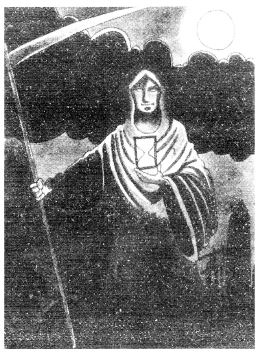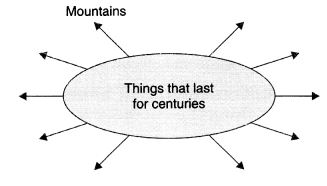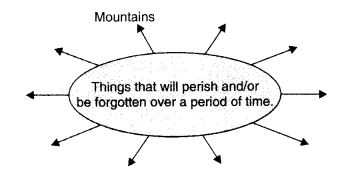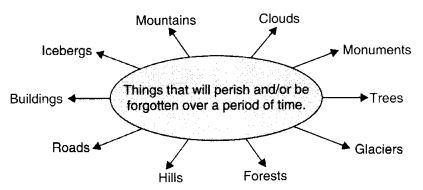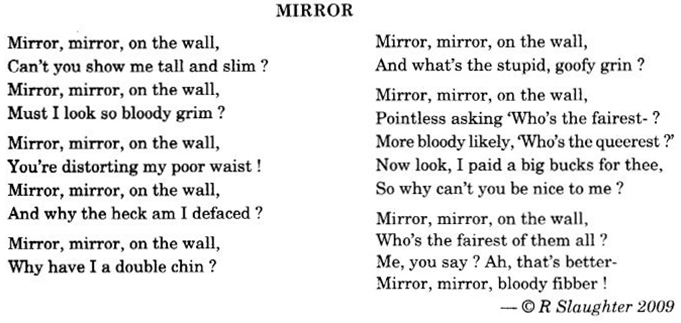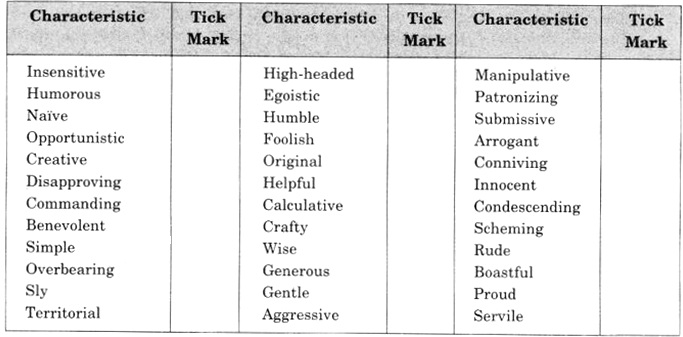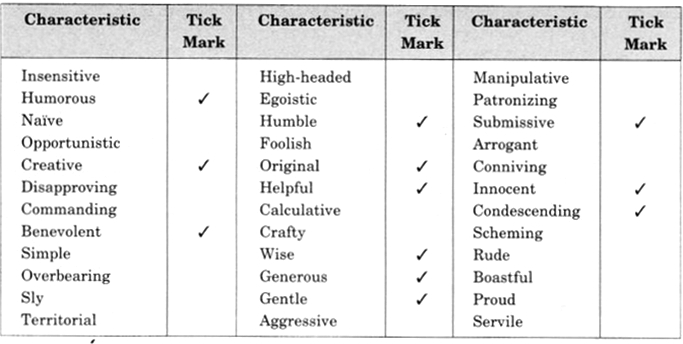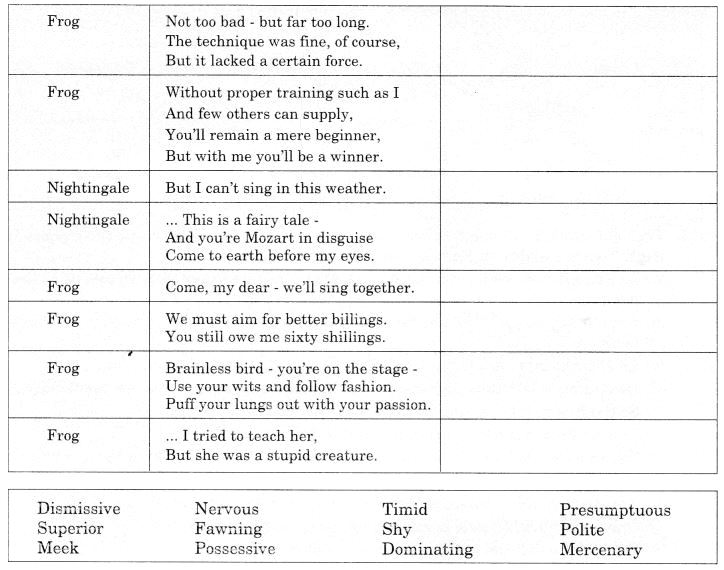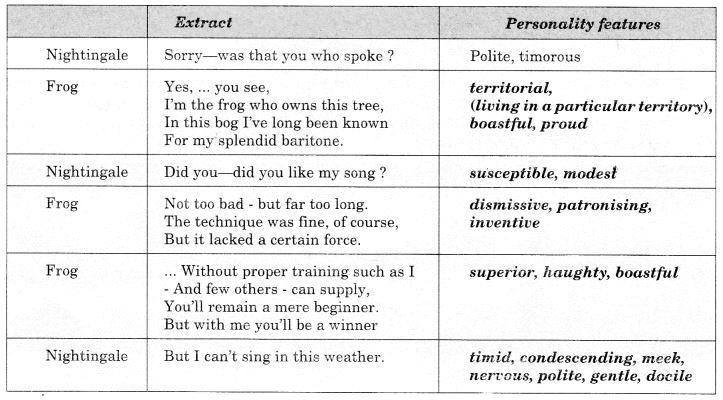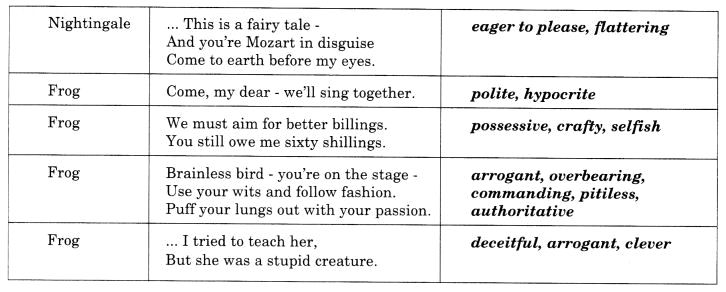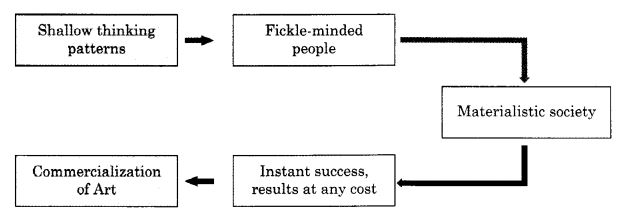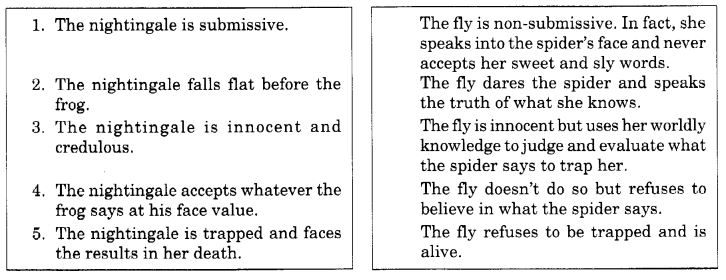NCERT Solutions for Class 10 English Literature Chapter 6 Virtually True are part of NCERT Solutions for Class 10 English. Here we have given NCERT Solutions for Class 10 English Literature Chapter 6 Virtually True.
NCERT Solutions for Class 10 English Literature Chapter 6 provided on this page for free download. Check out NCERT Class X Solutions English Literature Chapter 6 and understand all the concepts easily.
| Board | CBSE |
| Textbook | NCERT |
| Class | Class 10 |
| Subject | English Literature |
| Chapter | Chapter 6 |
| Chapter Name | Virtually True |
| Category | NCERT Solutions |
NCERT Solutions for Class 10 English Literature Chapter 6 Virtually True
TEXTUAL EXERCISES
(Pages 71, 78)
Question 1.
Before reading the story, attempt the following working in groups of four or five.
(a) Do you play computer games ? How many hours do you spend playing games on the computer as compared to outdoor games ?
(b) Make a list of your favourite games. Have a class discussion on the advantages and disadvantages of computer games.
(c) Look in your dictionaries/computer to find synonyms for the word ‘virtual’.
(d) Look at the K.W.L. chart given on next page. Based on the information you have gathered till now, complete the K and W columns. You may work with your partner. After reading the story complete the third column.
| K-What I know | W-What I want to know | L-What I learnt | |
| Virtual Reality | (a) | (b) | (c) |
| Virtual Environment | (d) | (e) | (f) |
| 3-D/three-dimensional | (g) | (h) | (i) |
| Simulation games | (j) | (k) | (l) |
| Computer simulations | (m) | (n) | (o) |
| Interactive psycho-drive games | (p) | (q) | (r) |
| Teleporting | (s) | (t) | (u) |
Answer:
(a) Yes, I do play computer games. On an average, I spend almost 2-3 hours playing computer games everyday. I play outdoor games for two hours daily, r
(b) My favourite games are : Pokemon Go, Road Rash, Need For Speed, Resident Evil,Grano Tursimo, Forza, Skyrim … class discussion to take place.
Advantages : pleasure-giving, entertaining, mental exercise, growth in analytical power, knowledge, general awareness, competitive spirit etc.
Disadvantages : promotion of violence, aggression, pain in backbone, in shoulders, time wastage, detachment from and neglect of family, social relationship hampered, sedentary life style, change in thinking, hardening of sensitivity, growth of abnormal behaviour.
(c) Few synonyms of VIRTUAL are : computer generated, simulated, cybernetic and realistic.
(d) (a) I know that it is not reality per se, but reality created with the help of computer software and some database. The user feels that he is inside it and is participating in it.
(b) I need to know the names of those particular softwares which help in creating such a situation. Also, if it could really be that easy then why isn’t every game prepared in such a format ?
(c) I learnt that everything is possible. Since cost is involved, so not everyone prefers to use these softwares etc.
(d) By Virtual Environment I know that it is nearer-to-truth environment. However, it is generated only by computers and softwares for the user.
(e) I want to know how much time does it take to create such an environment. Also what are the pros and cons for it ?
(f) There are no negatives of such an environment. However, the biggest plus point of this would be that the day such a procedure is initiated, the current era wouldn’t even exist. It’s all about advanced technology. The more you use it… the better it is for mankind.
(g) 3-D is about creating some sort of special effects to an image. It is to make the user feel as if the image or the subject is actually/physically present in front of , him.
(h) I want to know if there is any difference between a 3-D and a Virtual Environment.
(i) There is perhaps a difference between both of them. On the one hand 3-D is all about creating special effects to an image or a moving subject on screen. On the other hand, ‘Virtual Environment’ is all about creating a completely different environment. In it it’s not about throwing special effects over to a particular image. Instead, it’s about giving a continuous effect to the entire programme.
(j) Simulation Games. These games are made to give the player a realistic experience. For example : There is a normal racing game which is available with just a fixed image of a car. And the car keeps moving with the help of a remote controller. On the other hand, there’s another car racing game. In it the player gets to select his choice of car with all the settings of the car and tracks. There is sound as well along with a complete “Virtual Environment’. Here, in simulation games there is more of excitement than the normal games.
(k) I want to know nothing.
(l) I learnt nothing new.
(m) By Computer Simulations I know that it is all about using those extra additional gadgets to a computer. These are like, steering wheel, a shooting gun, some extra tools and weapons to play a particular game.
(n) I want to know if it is possible to get the same experience without using all such gadgets.
(o) I learnt that it’s not possible. To get a realistic feeling of the game and to actually develop more interest into it, one must have all those extra additions to his computer. Else, it would be like any other normal game.
(p) By Interactive Psycho-drive Games I learn that these are those car racing games wherein the player gets to handle a lot of crazy stuff. For example: If he wants to win the game or a particular level, he must perform some special stunts using some cheat codes. It is to gain some additional points than won by any other player.
(q) No questions.
(r) I learnt nothing.
(s) By Teleporting I know that it means switching over from one point to another within a split second of time. For example : While playing a game if the player gets a special bonus score or if he finishes up his target then he gets a special benefit. It is of skipping a level ahead or to get transformed into something else within a split second.
(t) I want to know if it has anything to do with any kind of voice service or interaction in between the game.
(u) No, it doesn’t have anything to do with any such service or interaction.
Exercises (Page 78)
- According to the newspaper, what had happened to Sebastian Shultz ?
- ‘Dad’s nutty about computers.’ What evidence is there to support this statement
- In what way did the second game seem very real ? (V. Imp.)
- The last game has tanks, jeeps, helicopters, guns and, headings. Would you put this and the other games under ?
- What was Michael’s theory about how Sebastian had entered the games ? (V. Imp.)
Answer:
- According to newspaper, Sebastian Shultz was badly injured in a motorway accident almost six weeks back. Now after six weeks he woke up from a coma that doctors had feared might have lasted forever.
- He’s nutty about computers as he has a Pentium 150 Mhz processor with 256 of RAM, a 1.2 GB hard disk drive and a 16 speed CD ROM with speakers, printer and also a scanner.
- It looked real as it was a continuation game after the first game ‘Wildwest.’ Also the name of the player was as well the same “Sebastian”.
- This game with machine guns, bombs, helicopter, sniper fire, tanks, can be put under the heading ‘Wargames’.
- Michael believed that Sebastian was also another intelligent personality like him in this world. He was so much crazy about playing games on computers. Both of them were playing a real game but virtually all together.
B. Reference to context
Read these lines from the story, then answer the questions.
‘That was my idea’ said Sebastian excitedly. ‘If only it would go a bit faster.’
- Where was Sebastian when he spoke these words ?
- What was his idea, and what was he referring to ?
- Was the idea a good one, and did it eventually succeed ? How ?
Answer:
- He was on the roof with the narrator and was waiting for the helicopter.
- His idea was to make it to the staircase and move upwards to get the helicopter after its landing on the roof and escape.
- The idea proved out to be negative as they somehow made it to the roof. But they couldn’t escape using the helicopter. They had to face almost 12 guards there along with their dogs. Sebastian got scared and he slipped down from the roof.
Question 2.
Answer the following questions briefly.
(a) Why did the news of the ‘miracle recovery’ shock Michael ?
Or
Why did the news about Sebastian Shultz shock Michael ? (CBSE 2015)
(b) Michael’s meeting with Sebastian Shultz had been a chance meeting. Where had it taken place and how ? (V. Imp.)
Or
How and where did Michael meet Sebastian Shultz ? (CBSE 2016)
(c) What kind of computers fascinated Michael and his dad ? Why ?
(d) Describe the first place where Michael was virtually transported.
(e) What help did Sebastian Shultz ask Michael for ? How did he convey this message ? (V. Imp.)
Or
How did Sebastian Shultz request Michael to help him ? (CBSE 2015)
(f) Why did Michael fail in rescuing Sebastian Shultz the first time ?
Or
Why couldn’t Michael help Sebastian the first time ? (CBSE 2015)
(g) The second attempt to rescue Sebastian Shultz too was disastrous. Give reasons. (V. Imp.)
(h) Narrate the accident that injured Sebastian Shultz.
(i) How had Sebastian Shultz entered the games ?
(j) How was Sebastian Shultz’s memory stored on Michael’s disk ? How did Michael discover that ? (V. Imp.)
Answer:
(a) Michael was shocked after reading the article as the name of the person involved in the article was Sebastian Shultz. He was someone whom Michael had recently ‘met’. Secondly, it was also because it was Sebastian with whom he had been playing all those games till then.
(b) Both of them played virtual video games on the computer screen. They thus met each other while playing virtual games on their respective computers.
(c) They were fascinated with the computers which could do almost everything from painting, playing music, creating displays etc. Both of them were very fond of playing games and doing all usual stuff on computers.
(d) The first place that Michael was virtually transported to was a complete dusty track through the centre of a town. He had a sheriffs badge pinned to his shirt.
(e) Michael received a printout from Sebastian saying that he was stuck. He wanted him to retrieve him by playing DRAGONQUEST. And he made a request for it through the computer. Precisely, it came through the computer printout.
(f) Michael was unable to save him the first time as both of them were trying to escape on a horse. However, ‘Sebastian’ was shot dead by the other ‘enemies’ running after them on their horses.
(g) The second attempt was negative as well, as he went down the dungeons with his sword drawn. But all of a sudden there appeared the dragon at the end of the corridor. He tried using his sword to kill the dragon. But it didn’t do any good and he was ‘killed.’
(h) It happened almost six weeks ago that Sebastian was badly injured in a motorway accident. His condition on arrival at the General Hospital was declared as critical, though stable. He was unable to regain his consciousness and his parents were informed that he was in a coma.
(i) Like Michael, even Sebastian was an intelligent person. He was very fond of computers and also playing games on them. This is how Sebastian entered the gaming world through playing psycho-drive video games.
(j) Michael used to play games on computers which had the capability to save the entire game in its memory while playing it. Based on this fact Sebastian’s memory had also got saved in his computer. Michael’s dad always used to tell him that a computer memory can never forget anything. Also no kind of data can get lost from it.
Michael discovered this after recollecting his father’s remarks. He also recollected Shultz’s mother stating that they stocked some games. But someone stole the lot. Shultz didn’t know what had happened to them. But Michael found them in the Computer Fair.
Question 3.
Sebastian Shultz had a close brush with death. After he recovers, he returns to school and narrates his experience to his classmates. As Sebastian Shultz, narrate your experience.
Answer:
Hi everyone ! I know you all must have been wondering about my whereabouts since so long. For all of you it’s been six weeks but for me it feels like as if everything just happened yesterday. I couldn’t even imagine that I would have to ever encounter such a situation. You may be amazed to know what had actually happened to me. Well! almost six weeks back I was on my way home riding a motorbike. All of a sudden there were these two speeding trucks which somehow hit each other and they collided. It took a split second for the two trucks to crash then and there themselves. I was riding my motorbike a little faster. On top of that the trucks were almost fifteen steps in front of me itself. In order to save myself from the crash I applied the brakes. The bike slipped and I fell over a huge pile of rocks on the pavement. I got hurt on my head and fell unconscious. It’s been almost six weeks that I’ve been hospitalized as I was in a coma. The doctors feared that it could last forever. However, by the grace of God I woke up from the coma and am fine now after having been saved by Michael, my friend. I am standing in front of you all narrating the most scariest experience of my life.
Thank you very much for a patient hearing.
Question 4.
Continue the story.
Will Michael and Sebastian Shultz meet in real life ? Will they be friends ? Will they try to re-enter the virtual world together ? You may use the following hints :
- How the accident occurred
- Transfer of memory
- Meeting with Michael
- Appeals for help
- Rescue and recovery
Answer:
No, it’s impossible that both of them would ever meet each other. After all, it’s just a game which has got no connection with the real world.
Perhaps, they can even be good friends to each other but only virtually and electronically. In reality there is no such real person by the name of Sebastian who is playing this game with Michael. They can never enter the virtual world together as Sebastian is simply the name of a player in the game and Michael is a real human being.
They would never be able to meet each other except in this virtual world created by these gizmos only.
If we go as per the points given above we may relate the story like this : The accident occurred which led Sebastian to slip in a coma. He had played the video game through 3-D and had got stored in the memory of his computer. It had been stolen and ended at the Computer Fair. From there Michael with his father had got the interactive psycho¬drive video game which had earlier been with Sebastian.
Appeals were sent for saving Sebastian from the coma. Michael got this information from the newspaper article. He played the video game himself and got hooked with Sebastian Shultz, the character in the video game. Thus he was rescued and saved.
Question 5.
Put the following sentences in a sequential order to complete the story.
(a) Sebastian Shultz was badly injured in a motorway accident and went into a coma.
(b) Sebastian’s memory was saved in the computer when he banged his head on it during the accident.
(c) When Michael played the game, he entered Sebastian’s memory.
(d) Michael bought the latest psycho-drive games from the Computer Fair.
(e) Sebastian Shultz was the second sheriff in the ‘Dragonquest’.
(f) Michael pulled Sebastian into the helicopter and the screen flashed a score of 40,000,000.
(g) Sebastian requested Michael to try ‘Jailbreak’.
(h) Sebastian failed to save the boy who fell through the air.
(i) Sebastian thought the helicopter was the right idea and they should go into the ‘Warzone’.
(j) The games were stolen from Shultz’s house.
(k) Sebastian thanks Michael for saving his life and asks him to keep the games.
Answer:
The sequential order to complete the story is : a, b, j, d, c, e, h, i, g, f, k
WRITING TASK
Question 6.
Do you think it is a true story ? Could it happen to you one day ? Here are some opinions about computer games in general.
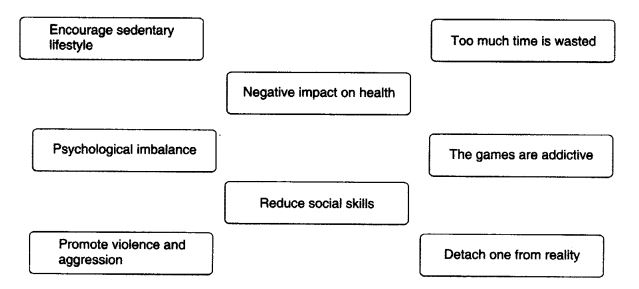
Answer:
Yes, I do believe that it’s a true story, as such a thing can happen with almost anyone in this world. A similar instance could happen with me as well if I would ever think of playing games on computers like Michael did. But it all depends if I play interactive psycho-drive video games and have all the accessories needed.
Question 7.
Do you think these opinions are biased ? Write an article entitled ‘Virtual games are a reality’.
Answer:
Yes, I think these opinions are biased.
Virtual Games are a Reality
It’s a fact that virtual games are a reality. They are computer simulated environments that can simulate physical presence in places in the real world as well as in the imaginary world. It’s just a matter of a few gadgets that are required to create such an environment while playing games on computers. Hi surround speakers, digital crystal clear sound output, a 3-D screen and few other hand-led devices are all it takes to view a picture image on a computer screen or an LCD/LED. Virtual games provide players a completely different experience compared to the kind of experience they get while playing normal games. It is because one gets almost physically involved in them through 3-D and becomes an integral part of what is seen on the screen. They are far much ahead of those normal animated games which are simple and have only a limited excitement. However, one needs both time and a lot of money to indulge in such activities because these modern gadgets are very costly.
Question 8.
In groups of four, design a new computer game.
Decide on the
- Setting
- Plot
- Characters
- Objectives
Answer:
For self-attempt at class level.
LISTENING TASK
Question 9.
Listen carefully to a text on ‘Tour of Body’ and answer the questions that are given below.
On the basis of your listening to the passage complete the following statements by choosing the answers from the given options :
1. The Cave-Automatic Virtual Environment is
(a) a modern surgical procedure
(b) a three-dimensional virtual reality room
(c) an accurate projection of the eye and the brain
(d) a technique for developing anatomical pictures
2. Projected image on the four walls of a room enables researchers to
(a) carry out micro surgery
(b) understand the functioning of the brain
(c) virtually get inside the molecular structure of cells and parts of human body
(d) reconstruct damaged parts of human body
3. The ‘CAVE’ is a boon to surgeons because
(a) they can treat diseases located in unreachable parts of the human body
(b) it has made X-ray and MRI unnecessary
(c) it helps them avoid surgical procedures in most cases
(d) it enables surgeons to use very small surgical instruments
4. For the CAVE to develop a virtual environment it is essential
(a) to apply mathematical formulae
(b) to project three-dimensional images on the walls
(c) to obtain two-dimensional MRI data first
(d) to understand the nature of the diseased cells and parts
5. Once inside a three-dimensional representation of an anatomical structure, surgeons can
(a) ‘move’ through and ‘peel away’ its layers
(b) shrink themselves and travel inside the body parts
(c) convert the data into a flat picture for detailed study
(d) locate the diseased parts of the body quickly
6. Dr. Szilard Kiss used CAVE to
(a) travel inside the eye of his patient
(b) identify the scar tissue growing over the retina
(c) go inside the layers of the retina
(d) isolate the ridge of the scar tissue
Answer:
- → (h) a three-dimensional virtual reality room
- → (c) virtually get inside the molecular structure of cells and parts of human body
- → (a) they can treat diseases located in unreachable parts of the human body
- → (a) to apply mathematical formulae
- → (a) ‘move’ through and ‘peel away’ its layers
- → (c) go inside the layers of the retina.
We hope the NCERT Solutions for Class 10 English Literature Chapter 6 Virtually True help you. If you have any query regarding NCERT Solutions for Class 10 English Literature Chapter 6 Virtually True, drop a comment below and we will get back to you at the earliest.

